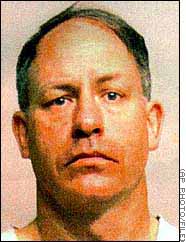
b: 1952
Summary
Name:
Robert Lee YatesNickname:
The Grocery Bag Killer / Spokane Washington's Serial Killer / The Spokane Serial KillerYears Active:
1975 - 1998Birth:
May 27, 1952Status:
ImprisonedClass:
Serial KillerVictims:
16+Method:
ShootingNationality:
USA
b: 1952
Summary: Serial Killer
Name:
Robert Lee YatesNickname:
The Grocery Bag Killer / Spokane Washington's Serial Killer / The Spokane Serial KillerStatus:
ImprisonedVictims:
16+Method:
ShootingNationality:
USABirth:
May 27, 1952Years Active:
1975 - 1998Date Convicted:
September 19, 2002bio
murder story
In 1975, Robert Lee Yates began a series of chilling acts that would haunt Washington state for over two decades. His first known crimes were the cold-blooded killings of two college students, Patrick Oliver and Susan Patricia Savage, who were found murdered after a peaceful picnic.
Yates targeted many who were less likely to be missed immediately by society—predominantly sex workers with substance abuse problems. He lured them under the guise of seeking services along East Sprague Avenue, a known area for such encounters. After gaining their trust, often by engaging in drug use with them, he would carry out his lethal intentions inside his Ford van. The routine was grimly meticulous: he would have sex with his victims before brutally ending their lives with gunshots to the head or heart, then dump their bodies in secluded spots.
The details of the murders were harrowing. For instance, in December 1988, Stacy Hawn’s skeletal remains were discovered, months after she vanished. Yates later confessed to killing her. In June 1996, the decomposing body of Shannon Zielinski was found in a wooded area, brutally shot in the head. The violence continued: Heather Hernandez was killed in August 1997, her body abandoned in an overgrown lot in Spokane just days after her murder.

Further adding to the grim tally, in August 1997, 16-year-old Jennifer Joseph was found dead in a field, killed by a gunshot to the head. Near her body, police discovered a towel and a strand of hair that eventually would help link Yates to the crimes. The discoveries continued with Darla Sue Scott, Melinda Lee Mercer, and Shawn Lynette Johnson, all found under similarly gruesome circumstances towards the end of 1997.
The series of murders culminated with the discovery of several more victims in late 1997 and early 1998. Shawn McClenahan and Laurie Wason were found together, both shot in the head and left with their heads wrapped in plastic bags. Their stories were poignant; Wason had been struggling with heroin addiction, while McClenahan, despite her tough life, was remembered for her generosity and kindness.
Yates’ capture in April 2000 ended the nightmare. Evidence collected from his vehicle and DNA testing conclusively linked him to the murders. His trial was a major event, revealing the extent of his heinous acts. Initially sentenced to death, Yates’ sentence was later converted to life imprisonment after Washington State abolished the death penalty.